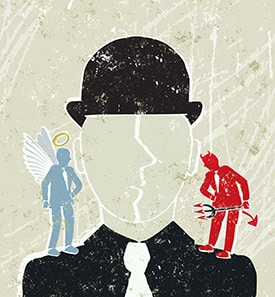Dear valued client,
Markets sustained its strong performance adding modest gains. This week was light on any pertinent economic announcements.
A new Abacus Data poll indicates potential trouble for the Trudeau government, with the Liberals projected to secure only 22% of the popular vote and potentially fall to fourth place in the House of Commons with just 37 seats in the next election. The Conservatives are expected to win a supermajority with 223 seats, while the Bloc Québécois and NDP are projected to hold 43 and 38 seats, respectively. This decline in Liberal support, losing about 25,000 voters daily, reflects a broader trend over the past year. Additionally, a recent House of Commons disclosure revealed that a six-day prime ministerial trip to Asia incurred $223,234 in in-flight catering costs, amounting to $516 per person per day for the 72 passengers on the flight.
Despite Trudeau’s dissipating popularity, he still has one very important supporter, NDP Leader Jagmeet Singh. After reading top-secret intelligence this week, Singh accused Prime Minister Justin Trudeau of allowing foreign interference in Parliament. When asked why he continues to support the government he criticizes, Singh said he would demand answers but wouldn’t trigger an election. This pattern is common; Singh fiercely criticizes the Liberals but still supports them, maintaining his party’s alliance with the government. Even after denouncing the 2024 budget for corporate greed, he endorsed it after vague promises from the Liberals. Similarly, Singh threatened to withdraw support if a national pharmacare plan wasn’t delivered by March 1 but relented after receiving a draft bill. He also supported the Liberals during the Emergencies Act inquiry, even if it ruled against them. Singh’s ultimatum on health-care crisis action in December 2022 was forgotten after a modest funding increase. Lastly, he criticized Liberal inaction on foreign interference but refused to trigger an election, arguing it wouldn’t restore democratic faith.
Vladimir Putin visited North Korea for the first time in 24 years, where he and Kim Jong Un signed a mutual defense pact. The agreement commits Russia and North Korea to support each other in case of aggression, marking their strongest collaboration since the Cold War. Full details of the pact were not disclosed, but it signifies a significant tightening of relations between the two increasingly isolated nations.
The Globe and Mail released a report this week about a much-overlooked conflict. For the past year, a power struggle between two rival armies has plunged Sudan into catastrophe with 25 million people urgently needing food and supplies and nearly 10 million displaced from their homes. The conflict has created the world’s worst displacement and hunger crisis, leaving 19 million children out of school and potentially causing over 150,000 deaths, including ethnically targeted massacres. Despite international demands for intervention, only a fraction of the necessary aid reaches Sudan, and global attention remains minimal due to other crises.
I’d like to leave you with a Daily Stoic passage about power, politics, philosophy, and listening to your ultimate inner guide – conscience.
“Things seemed good at first. In fact, they seemed good for quite a while. Historians have a name for the first half decade—quinquennium Neronis—and it means “five good years of Nero.” But the next nine years were not good, and there must have been signs before then about the direction he was going to go.
Seneca was a student of history. He was a student of human nature. He might not have understood it at the outset, but he would have sensed pretty quickly that Nero was not up for the job. He must have been slowly and steadily horrified, especially as the bodies piled up. What did Seneca think when Nero tried to kill his own mother, not once but four times before succeeding?
Yet Seneca continued to ignore his “own soul’s warning,” as the song lyrics go. He added intellectual and moral heft to Nero’s regime. For a man who wrote so eloquently about resisting the pull of ambition and success and money, he must have felt reservations about the enterprise from the beginning, even before Nero’s descent into madness. Was this really the place for a philosopher at all? Should he have been cultivating power and political offices to begin with?
Like most warnings, those pings of Seneca’s conscience were there for good reason. Yet he ignored them. He probably told himself it was his duty, that he was the adult in the room—and he may well have been. Still, it’s also clear that Seneca’s moral authority evaporated every day he was in that room, probably exactly as Nero and all tyrants and gangsters know and exploit. Nero was bringing Seneca down to his level, making him complicit in everything he did.
We are not so different from Seneca, though hopefully we have less blood on our hands. We all need to do better at listening to our soul’s warning. No one is saying we have to be perfect saints, that’s not possibly and probably not even worth trying. We do need to draw clearer lines though and be willing to walk away when people and events cross them. We become like the people we associate with, which is why we must choose our bosses (and our industries) carefully.
We only get one life. We only have one reputation. How will we spend it? What will we do with it? Let Seneca be a cautionary tale.”
Have a terrific weekend,
PW



